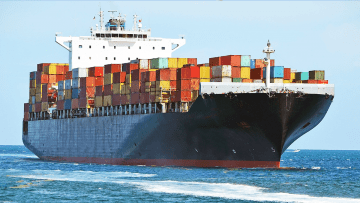John Feffer in Inference Review:
 THE MODERN GLOBAL economy rests on the foundation of modern medicine. The transactions that sustain the global trade of goods and services require an implicit assurance that merchants and financiers are not infecting one another when they meet to conduct business. Economic globalization requires that the nodes of international distribution—ports, airline terminals, railway stations, intermodal hubs—do not function as distribution points for pathogens. Otherwise, the transaction costs in disrupted operations, emergency health care, and labor turnover would outweigh overseas investment, and resources would stay closer to home.
THE MODERN GLOBAL economy rests on the foundation of modern medicine. The transactions that sustain the global trade of goods and services require an implicit assurance that merchants and financiers are not infecting one another when they meet to conduct business. Economic globalization requires that the nodes of international distribution—ports, airline terminals, railway stations, intermodal hubs—do not function as distribution points for pathogens. Otherwise, the transaction costs in disrupted operations, emergency health care, and labor turnover would outweigh overseas investment, and resources would stay closer to home.
Before the modern era, global transactions in the marketplace or around the field of battle carried a significant risk of infection. The global circulation of pathogens, hitching a ride on explorers, soldiers, and traders, has periodically devastated civilizations. Plagues played a role in undermining the Roman Empire. Disease carried by the conquistadors devastated indigenous communities throughout the Americas. The influenza outbreak at the end of World War I was the final factor in suppressing the first wave of modern economic globalization, which had gathered force at the beginning of the twentieth century thanks to the telegraph, railroads, and modern shipping.
More here.
